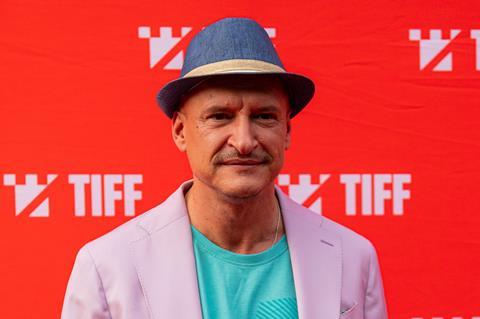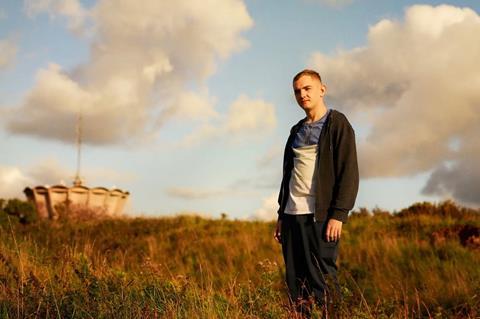
The 24th Transilvania International Film Festival (TIFF) opens today (June 13) with a gala screening of Irish director Brendan Canty’s coming-of-age-film Christy in Cluj’s Unirii Square.
In addition to the main competition dedicated to first and second-time directors, this year’s programme includes a new competitive section, Teen Spirit, dedicated to exploring youth culture through fiction and documentary films.
Regular sidebars Supernova, No Limit, and Full Moon return, while an excellence award will be presented on opening night to Romanian actor Florin Piersic.
International filmmaker guests in town for special events include Rodrigo Cortés, Rainer Sarnet and Adiklhan Yerzhanov, as well as Basque directors Aitor Arregi and Jon Garano. Danis Tanovic will present his latest film My Last Summer and Bela Tarr will be the subject of a retrospective of his fictional work and the recipient of a lifetime achievement award.
The festival is also marking the 20th anniversary of the premiere of Cristi Puiu’s The Death Of Mr Lazarescu, the film that helped to reinvigorate Romanian cinema and launched the Romanian New Wave, with a screening of the film and a celebration with the filmmakers.

TIFF artistic director Mihai Chirilov talks to Screen about what makes the festival stand out on the international circuit, the new UK strand and the guests he is particularly looking forward to welcoming to this year’s edition.
Why have you introduced the Teen Spirit competition?
Teen Spirit is for films aimed at the audience aged 16 and above, and this is a segment of the audience that is least represented at film festivals. The titles we have selected come from all over the world such as our opening film Christy and Little Trouble Girls.
They deal with young generations from different times and don’t just focus on Gen Z. For example, we have an excellent film called Southern Chronicles about what it was like to be a teenager at the beginning of the 90s. It is a relatable story with universal appeal.
For the jury, we have selected 15 young Romanians to decide on the winner, rather than a professional jury. We were quite astonished when there were 50 applications to be a jury member arriving in the first hour after the call was launched.
In addition, we have a new quirky section Give Me Five which, for the first year, will be showcasing five UK debuts that haven’t had such wide international exposure like Nina Conti’s Sunlight and Jack King’s The Ceremony.
How do you approach programming TIFF? Does it differ in any way from other film festivals?
I think most second-league festivals put their line-ups together by doing a sort of comfortable ‘copy and paste’ from the selections of the golden triad of festivals. Of course, you can’t avoid having some films from Cannes, Berlin and Venice, but I try to make real discoveries from more adventurous festivals like Karlovy Vary and Rotterdam as well as smaller festivals that are showing films below-the-radar by young filmmakers who deserve to receive wider attention.
Putting a programme together has become more difficult for me and my team because we have to watch more and more films to find the ones that stand out and don’t ride the wave of conformism.
Films as diverse as Eva Libertad’s Deaf and Bernhard Wenger’s Peacock are among the 12 titles competing for the Transilvania Trophy in the main competition. Is there a common link between the films in this line-up?
Most of the films are dealing with people who are in a conflict where they don’t understand each other or the world in general. When real life isn’t able to solve the problems, you can always rely on art to come up with a satisfying fictional resolution that doesn’t exist in reality. The 12 films reflect a lack of communication and authenticity in today’s world as well as a lack of empathy between people.
Who are the filmmakers to look out for at this year’s Romanian Days?
People will be able to catch up on award-winning titles like Bogdan Muresanu’s tragicomic ensemble film The New Year That Never Came, set over a single day in Romania in December 1989, and Teodora Ana Mihai’s Traffic inspired by a real-life art heist in Rotterdam and based on a screenplay by Cristian Mungiu.
Gala screenings will be dedicated to the latest urban satire from Radu Jude awarded in Berlin, Kontinental ‘25, providing the foreign guests in Cluj an extra meta layer as the film was shot in this very town, and also to the world premiere of Tudor Giurgiu’s The Spruce Forest, a timely reenactment of a past Russian aggression from Romanian history, excitingly mixing fiction, documentary, theater and visual arts.
The Romanian Days’ line-up this year is very strong in documentaries with many of them coming from young female directors. There is a trend to make documentaries solely from archive footage. This can be seen in Andra MacMaster’s Bright Future, about Romania’s participation in the World Festival of Youth and Students in North Korea in 1989, and Ana Lungu’s meditation on collective memory and personal history from the Second World War to the end of the Communist era in Merman.
My top recommendation is Alexandru Mavrodineanu’s Love Hurts because it deals with vulnerable males, rather than the trendier toxic masculinity, and people opening up without a safety net about their relationships.
I would also be happy to see more exposure for Endre David’s Beyond The River about the exclusion of a Roma community from the rest of the world. It’s the most shocking film not only in the Romanian Days but in the entire festival. It’s one the adventurous professional film community should definitely see.















![[L-R]: Amanda Villavieja, Laia Casanovas, Yasmina Praderas](https://d1nslcd7m2225b.cloudfront.net/Pictures/274x183/6/4/1/1471641_pxl_20251224_103354743_618426_crop.jpg)








![[L-R]: Amanda Villavieja, Laia Casanovas, Yasmina Praderas](https://d1nslcd7m2225b.cloudfront.net/Pictures/100x67/6/4/1/1471641_pxl_20251224_103354743_618426_crop.jpg)
No comments yet